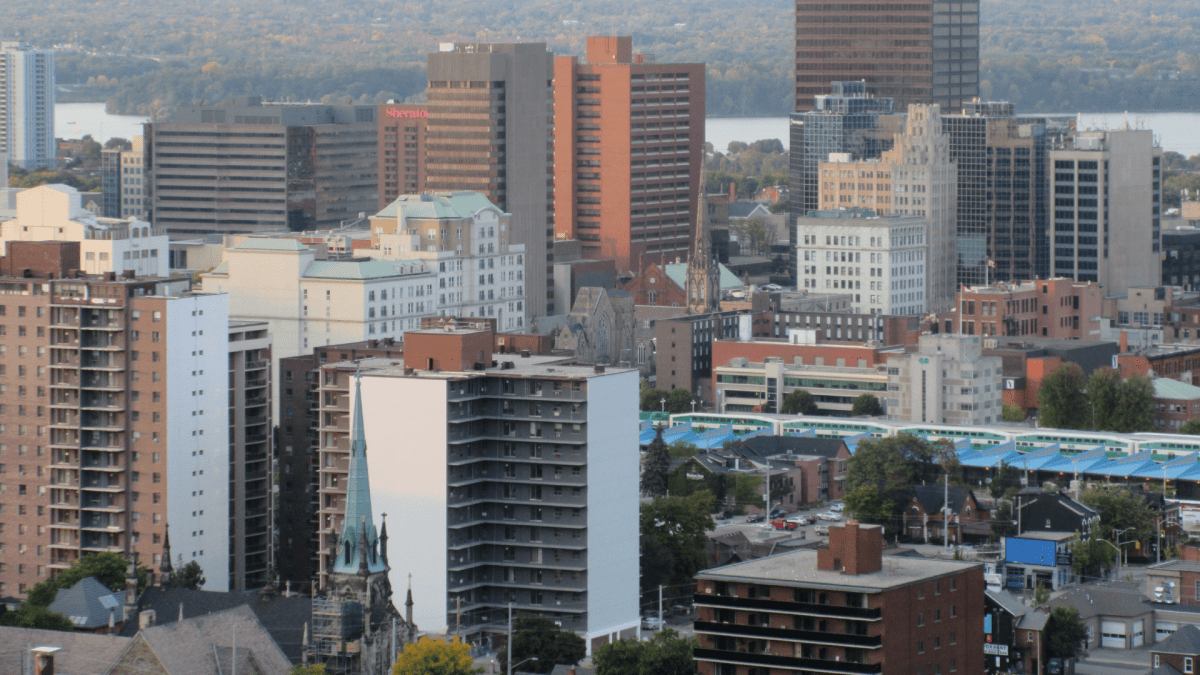Members of a Hamilton non-profit working towards a carbon-neutral community say the city is not close to laying out the climate action plan it approved in December of 2019.

Ian Borsuk, a project coordinator for Environment Hamilton, told Global News the city is still in a “pre-plan” phase due to the fact that two of three public health workers tasked with the climate file were diverted to work on the city’s coronavirus pandemic response.
“We’re looking at developing frameworks and best practices but lagging behind and still talking about what the best practice for planning is,” said Borsuk.
In March 2019, Hamilton’s Board of Health voted 10-0 to declare a “climate emergency,” joining a list of other Canadian cities like Vancouver, Halifax and Kingston.
The declaration was in response to a warning from the United Nations Intergovernmental Panel on Climate Change which says Canada has just 12 years to take action to stave off the worst outcomes of climate change.

Get daily National news
In December 2019, Hamilton city councillors approved a plan of action for adapting to climate change with a series of goals within’ nine “areas of focus” including infrastructure, transportation and the environment.
However, Borsuk suggests some easy-to-implement initiatives simply have not been acted upon, citing a home energy retrofit grant program from the Federation of Canadian Municipalities as a significant one the city didn’t apply for.
“The city of Burlington did,” said Borsuk. “And they’re going to be implementing a pilot project within the next few months.”
Borsuk also points to the speed at which Vancouver is moving ahead with its initiatives focusing on a clean energy plan that was presented to council on Nov. 3.
“Their city council is having a really robust discussion about how much to spend on what programs to help them reach their emission level reductions.,” Borsuk said.
- Donald Trump claims B.C.’s ‘very large faucet’ could help California’s water woes
- U.S. TikTok ban case pits free speech vs. national security. Which will win?
- A final, tragic text from doomed Titan sub revealed at Coast Guard hearing
- Meta bans RT, other Russian state media outlets over ‘foreign interference’
During the general issues committee on Wednesday, the city used a staff report to defend its position, saying it continues to “prioritize” a climate action plan with a task force and that it spent $200 million on capital initiatives in 2020.
The restoration of the Waterfront Trail and Flamborough wetlands, the Westmount solar pilot project, 11 kilometres of new bike lanes, planting 6,500 calliper trees and the installation of two electric vehicle charging stations were some of the big-ticket items the report said was invested in to achieve “net-zero” emissions by 2050.
It also boasted that the city’s corporate emissions between 2005 and 2018 have been reduced by 43 per cent.
Despite the claims, Environment Hamilton’s executive director Lynda Lukasik said she was “honestly” disappointed with the report, saying it doesn’t detail a clear pathway to “net-zero” emissions.
Lukasik said urban growth management was an urgent matter that was not being addressed.
“The more our urban area expands outwards, the more likely our residents in these areas will become car-dependent,” Lukasik said.
With the support of Coun. Jason Farr, Lukasik called for more disclosure of the city task force’s agenda.
However, most councillors and Mayor Fred Eisenberger said they could not support the move, suggesting it would bog down the creative process potentially through a deluge of staff meetings.
“That is really limiting the ability to have our staff to operate freely without interference to come up with the best advice they can possibly bring,” Eidenberger said.
As an alternative, councillors did support the mayor’s suggestion for six-month updates on the progress of the climate file.
City staff are expected to come up with a community energy plan sometime in the first half of 2021, according to the city.












Comments